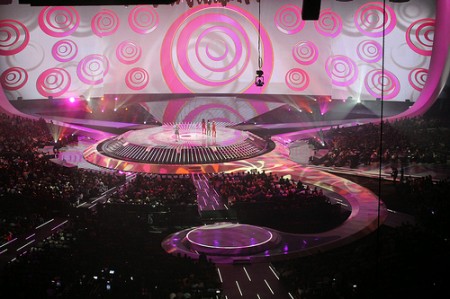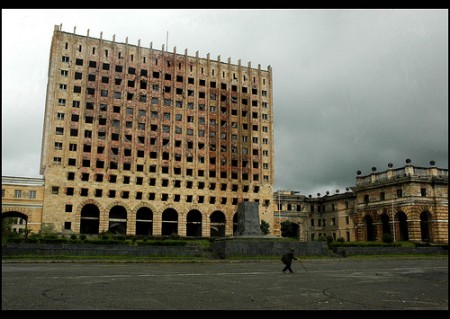
It is a tacky show, and one well worth watching. This year’s Eurovision Song Contest features another round of spacy outfits and cheesy tunes with charming titles, ranging from Norway’s ‘Haba Haba’ to Armenia’s ‘Boom Boom’ and Finland’s ‘Da Da Dam’.
The first Eurovision contest took place in Switzerland in 1956, and only seven countries participated. Britain, Austria and Denmark were not present because they failed to apply on time. While most of Western Europe still doesn’t take the contest too seriously, it’s a different story in the East.
Looking at winning countries over the last two decades, there has been a marked move eastwards, as more countries from the former Communist block have joined the contest and award points to each other. The causes of bloc voting are debatable; some say it’s political, others argue that it is cultural.




